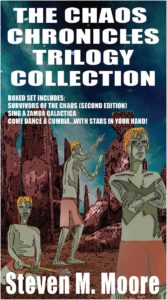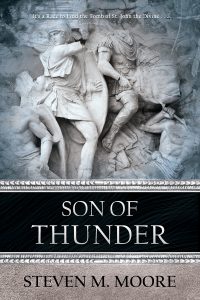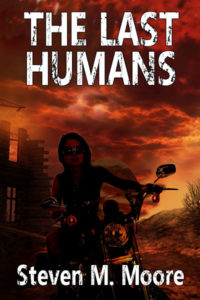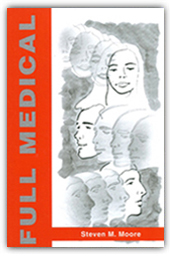Why I read non-fiction…
I’m like many people: I’d like more time to read. I have an excuse many readers don’t have, though: I’m often writing fiction, articles for my blog (like this one!), and answering email correspondence relevant to my writing life. And while my Kindle tells me I read a lot, about a book a week for fiction, but I want more reading time.
I often review books I read, unless I can’t say anything good about them. (If it seems that will be the end result for a book, I won’t review it.) Other endorsements can be found buried in these posts at times. But if you glance at all that or at the “Steve’s Bookshelf” webpage that features a list of only some books I’ve read and can recommend, though, you’ll see many are non-fiction. They take longer to read. But that’s time well spent too!
 In fiction, I tend to read in the genres and subgenres I write in: mysteries, thrillers, suspense stories, crime novels, science fiction, and some historical fiction. While it’s hard to describe my own books with just one of those genres (my 99-cent sale this month features the Chaos Chronicles Trilogy Collection, a bundle of three novels that range from dystopian to first-contact stories and beyond, all with mystery and thriller elements—see below), I can go beyond them in my fiction reading.
In fiction, I tend to read in the genres and subgenres I write in: mysteries, thrillers, suspense stories, crime novels, science fiction, and some historical fiction. While it’s hard to describe my own books with just one of those genres (my 99-cent sale this month features the Chaos Chronicles Trilogy Collection, a bundle of three novels that range from dystopian to first-contact stories and beyond, all with mystery and thriller elements—see below), I can go beyond them in my fiction reading.
In non-fiction, books that are bios, history, and politics chew up more of my reading time than fiction, as mentioned above, and I don’t write non-fiction. If I want more reading time, why don’t I just minimize my non-fiction reading?
 The answer is complex, but the crux of the matter is simple: Reading non-fiction is important for my fiction writing! To paraphrase Tom Clancy (the exact quote is among those running across the top of this website): Good fiction must seem real. This applies to sci-fi as much as the other genres that describe my fiction. I can’t do a good job of writing about my fictional worlds, including ET ones, if I don’t at least partially understand the real world I live in.
The answer is complex, but the crux of the matter is simple: Reading non-fiction is important for my fiction writing! To paraphrase Tom Clancy (the exact quote is among those running across the top of this website): Good fiction must seem real. This applies to sci-fi as much as the other genres that describe my fiction. I can’t do a good job of writing about my fictional worlds, including ET ones, if I don’t at least partially understand the real world I live in.
Of course, this is even more of a truism for fiction set on planet Earth in the past, present, or near future; many of my novels fit under than umbrella too. A good knowledge of historical events is required to write about the past (historical fiction, a book like my Son of Thunder, for example); a good knowledge of present ones and reasonable extrapolations to predict future ones, especially in the sense of providing warnings that readers might want to heed (those about China and Russia in the later “Esther Brookstone” and more recent “Steve Morgan” books, for example), can turn a plot into a powerful statement.
 Moreover, reality is often stranger than fiction, so when an erstwhile critic tells an author something occurring in a novel could never really happen, that author can counter with, “Actually, something similar has already occurred.”
Moreover, reality is often stranger than fiction, so when an erstwhile critic tells an author something occurring in a novel could never really happen, that author can counter with, “Actually, something similar has already occurred.”
In The Last Humans, someone who’d read the novel wondered if a worldwide pandemic was even possible, not the only thing that’s prescient about that novel unfortunately. Of course, Covid-19 was just that, a worldwide pandemic, and it’s still an unanswered question if the real virus was tweaked in a Chinese biowarfare lab in Wuhan and then let loose (if so, the Chinese have taken it on the chin). (The nation responsible in the novel was North Korea, but that doesn’t change the message.) The current drought and fire-scarred landscapes in SoCal are real manifestations of what was predicted in that novel too. In the case of writing this novel, I extrapolated from what I knew (even the desalination plants in the novel already existed, just not off the SoCal coast). Could I have written any of this without reading non-fiction? (Okay, the desalination plants came from reading Science News, but that’s also non-fiction!)
 The Last Humans was pre-Covid but also one of my more recent works (2019 publication date, but written at least a year earlier—traditional publishing is slow!). Let’s go back a few years to 2006 and my first sci-fi thriller Full Medical (now the first book in the “Clones and Mutants” series): That novel is a sci-fi thriller, but its motivation came from non-fiction, in particular, from the very real cloned ewe Dolly! Yes, the novel told the tale of an evil application of cloning (results limited to the very rich—medical advances often are even now), but cloning was going on at the time I wrote the novel, and it still is. (I had to learn a bit about genetics and aging at the time I wrote the book.)
The Last Humans was pre-Covid but also one of my more recent works (2019 publication date, but written at least a year earlier—traditional publishing is slow!). Let’s go back a few years to 2006 and my first sci-fi thriller Full Medical (now the first book in the “Clones and Mutants” series): That novel is a sci-fi thriller, but its motivation came from non-fiction, in particular, from the very real cloned ewe Dolly! Yes, the novel told the tale of an evil application of cloning (results limited to the very rich—medical advances often are even now), but cloning was going on at the time I wrote the novel, and it still is. (I had to learn a bit about genetics and aging at the time I wrote the book.)
I firmly believe that all authors should read non-fiction as well as fiction. Both might spark creativity, but the first also often provides a foundation for that creativity. Fiction writers should never forget that!
***
Comments are always welcome. (Please follow the rules listed on my “Join the Conversation” web page. If you don’t, your comment is classified as spam.)
 The Chaos Chronicles Trilogy Collection. This special 99-cent sale at Smashwords is better than my previous ones! This ebook bundle contains three novels: Survivors of the Chaos, Sing a Zamba Galactica, and Come Dance a Cumbia…with Stars in Your Hand! You start your mind-blowing journey on a future Earth run by international mega-corporations and policed by their mercenaries, but a clever director of the interplanetary space agency refurbishes three long-haul space rigs and uses them to send colonists off to nearby stars. Those colonies become the salvation for humanity as human beings team up with good ETs to battle bad ones…and a collective super-intelligence that’s a bit ambivalent as a villain. But the worst enemy, a human, is yet to come; if this is my Foundation trilogy, he’s my Mule. Spanning thousands of years of future near-Earth history, these adventures in space and time will give you hours of sci-fi mysteries and thrills.
The Chaos Chronicles Trilogy Collection. This special 99-cent sale at Smashwords is better than my previous ones! This ebook bundle contains three novels: Survivors of the Chaos, Sing a Zamba Galactica, and Come Dance a Cumbia…with Stars in Your Hand! You start your mind-blowing journey on a future Earth run by international mega-corporations and policed by their mercenaries, but a clever director of the interplanetary space agency refurbishes three long-haul space rigs and uses them to send colonists off to nearby stars. Those colonies become the salvation for humanity as human beings team up with good ETs to battle bad ones…and a collective super-intelligence that’s a bit ambivalent as a villain. But the worst enemy, a human, is yet to come; if this is my Foundation trilogy, he’s my Mule. Spanning thousands of years of future near-Earth history, these adventures in space and time will give you hours of sci-fi mysteries and thrills.
Around the world and to the stars! In libris libertas!
